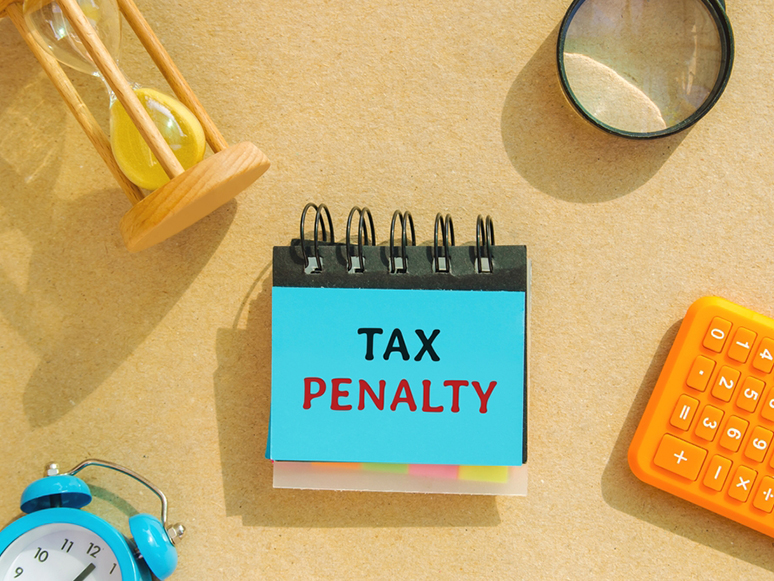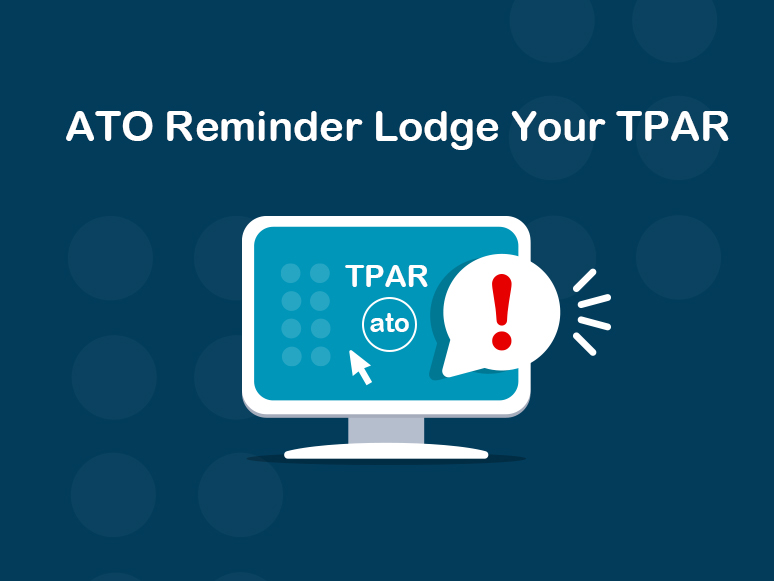logo


23rd Sep, 2023

This tax time, the ATO is cracking down on taxpayers not lodging their taxable payments annual report (TPAR) on time. It has recently issued more than 16,000 penalties for businesses who failed to lodge their TPARs for previous years despite receiving multiple reminders. The average penalty for non-lodgment was approximately $1,110.
As a reminder, the TPAR applies to businesses in the building and construction industry as well as businesses that provide cleaning, courier and road freight, information technology and security, investigation or surveillance services and have paid contractors in relation to those services.
Businesses that may have received a reminder from the ATO to lodge a TPAR but do not actually need to lodge still need to submit a TPAR non-lodgment advice form to avoid an unnecessary follow-up. The form allows entities to notify the ATO about multiple years, as well as to advise that they will not need to lodge in the future.
Around $400 billion in payments made to almost 1.1 million contractors were reported in the TPAR system in the last financial year. The ATO uses the information obtained to check for red flags, including non-reporting of income, non-lodgment of tax returns or activity statements, overclaiming of GST credits or misusing of ABNs.
The ATO will also include information reported in the TPAR in its pre-filling service to help contractors get their income right in their tax returns. The pre-filled data will give taxpayers transparency about the data that has been provided to the ATO about their business transactions.
23rd Aug, 2023

Businesses that make payments to contractors may need to report these payments and lodge a taxable payments annual report (TPAR).
You will need to lodge a TPAR if your business made payments in the last financial year (ending 30 June 2023) to contractors providing the following services:
Contractors can include subcontractors, consultants and independent contractors. They can operate as sole traders (individuals), companies, partnerships or trusts.
If reportable services are only part of the services your business provides, you need to work out what percentage of the payments you receive are for taxable payment reporting (TPR) services each financial year. You do this to determine if you need to lodge a TPAR.
This doesn’t apply to building and construction services you provide.
If the total payments you receive for TPR services are 10% or more of your business income, you must lodge a TPAR. If they are less than 10% of your business income, you don’t need to lodge a TPAR.
TPARs are due on 28 August each year. If you don’t lodge on time, you may have to pay a penalty. You can help prepare for your TPAR by keeping records of all contractor payments.
If you’ve previously lodged a TPAR but you don’t need to lodge one this year, you can submit a TPAR Non-lodgment advice to let the ATO know.
16th Nov, 2021

A new data matching program designed to identify and address non-compliance with tax and super obligations is under way in relation to government payments for the 2018–2019 to 2022–2023 income years. It covers most services that the Commonwealth Government pays third-party program providers to deliver.
The ATO will obtain data from Comcare, the Department of Health, the National Disability Insurance Agency, the National Indigenous Australian Agency, the Department of Home Affairs, the Department of Veterans’ Affairs and the clean energy regulator. This will add to the information the ATO currently receives from government entities through the taxable payments annual report (TPAR).
This means that contractors, subcontractors and consultants in any type of business structure (sole trader, company, partnership or trust) that receive payments from government under these agencies’ programs may be subject to extra scrutiny.
It is estimated that 36,000 service providers will be captured under this program each financial year. Of that number, approximately 11,000 will be individuals and the rest will be companies, partnerships, trusts and government entities.
TIP: If you’re a service provider under one of the affected government programs, you should ensure you’re meeting all your registration and lodgment obligations. We can help review your records and correct any problems so you don’t get a surprise letter from the ATO.
30th Apr, 2021

The ATO is reminding owners of businesses that provide various services to lodge their taxable payments annual report (TPAR) for the 2019–2020 income year. It estimates that around 280,000 businesses were required to lodge a TPAR for the 2019–2020 financial year, but at the beginning of March around 60,000 businesses still had not complied with the lodgment requirements. The reports were originally due on 28 August 2020. To avoid possible penalties, these businesses are encouraged to lodge as soon as possible.
The ATO notes that many businesses that have engaged delivery services (including food delivery services) though a contractor/subcontractor may not know they have to lodge a report.
The TPAR was introduced to combat the “black economy” which is estimated to cost the Australian community around $50 billion, or 3% of gross domestic product (GDP). It is designed to help the ATO identify contractors or subcontractors who either don’t report or under-report their income (eg through hiding amounts received as “cash in hand”).
The report is required for businesses that make payments to contractors/subcontractors and provide any of the following services:
For example, during the past year many eateries, grocery stores, pharmacies and other general retailers pivoted to providing home delivery for their customers. As such, they may have needed to engage contractors or subcontactors to provide courier services. If the total income received for these deliveries or courier services amount to 10% or more of their total business income, they will be required to lodge a TPAR even though they may not have needed to do so previously.
If your business is required to lodge a TPAR, the details you’ll need to report about each contractor should be easy to find and are generally contained on the invoice you receive from them. This includes details such as their ABN, name and address, and the gross amount paid for the financial year (including GST).